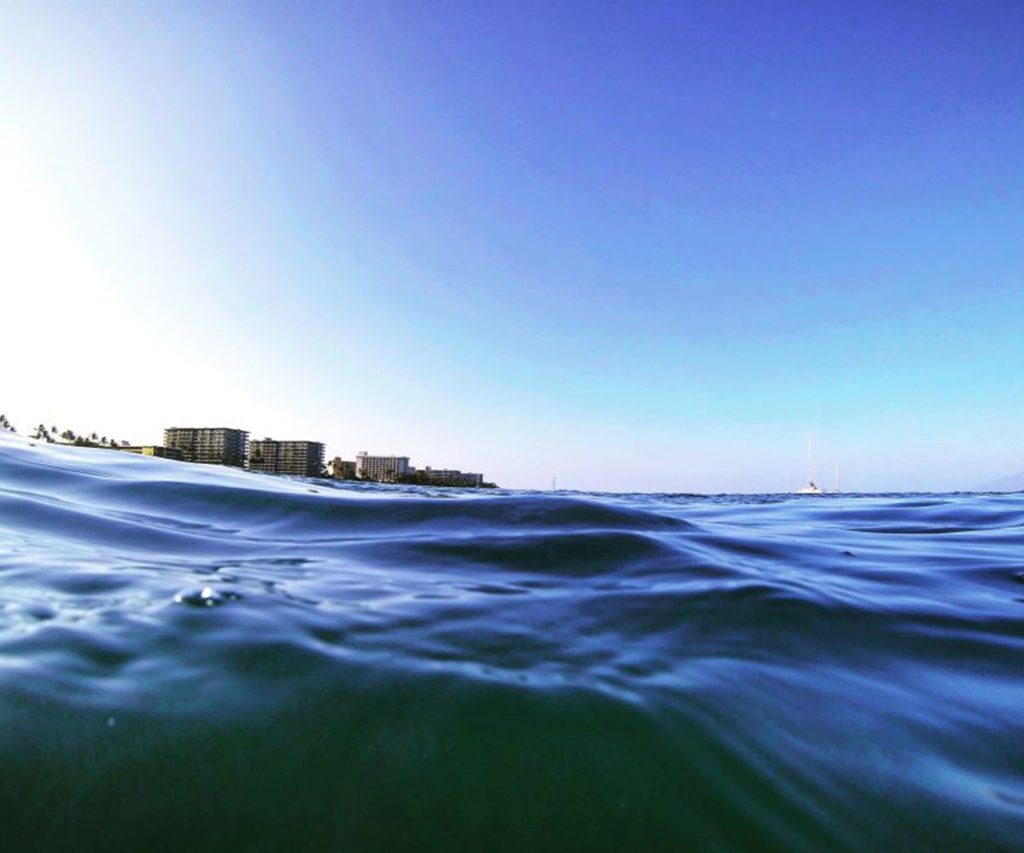On 23 September, the Impact Lab Course students attended the first of three in-person seminars for the semester.
Impact Lab is a six-credit experiential learning course that enables students to experience directly working with social ventures under the guidance of faculty instructors and professional mentors. These seminars are part of the program, designed to help students explore social impact businesses through lectures, insights from guest speakers, practical exercises, and more.
In this session, Lucia Loposova, the course’s Teaching Assistant, started by introducing the topic of the design thinking process, which consists of three stages: inspiration, ideation, and implementation. “Inspiration comes from observing the situation around you, and empathizing with the audience you’re trying to help. Then, you’re defining what the problem actually is,” she explained. “Ideation is a creative process of coming up with ideas to solve these problems.”
Thinking Outside the Box
True to the course’s experiential learning nature, Lucia led a quick problem-solving activity. The goal was to connect nine dots arranged in a 3×3 layout with four straight lines. After some consideration, several students came forward to share their solutions. While some arrived at the model answer, others presented different approaches, such as using a thick pen to cover all dots at once, or completing the challenge with just three lines.
The key takeaway was to think outside the box. Lucia emphasised the importance of coming up with as many ideas as possible during the “diverge” stage of ideation. She encouraged the students to “accept all, even crazy ideas” before picking out the feasible choices in the “converge” stage.
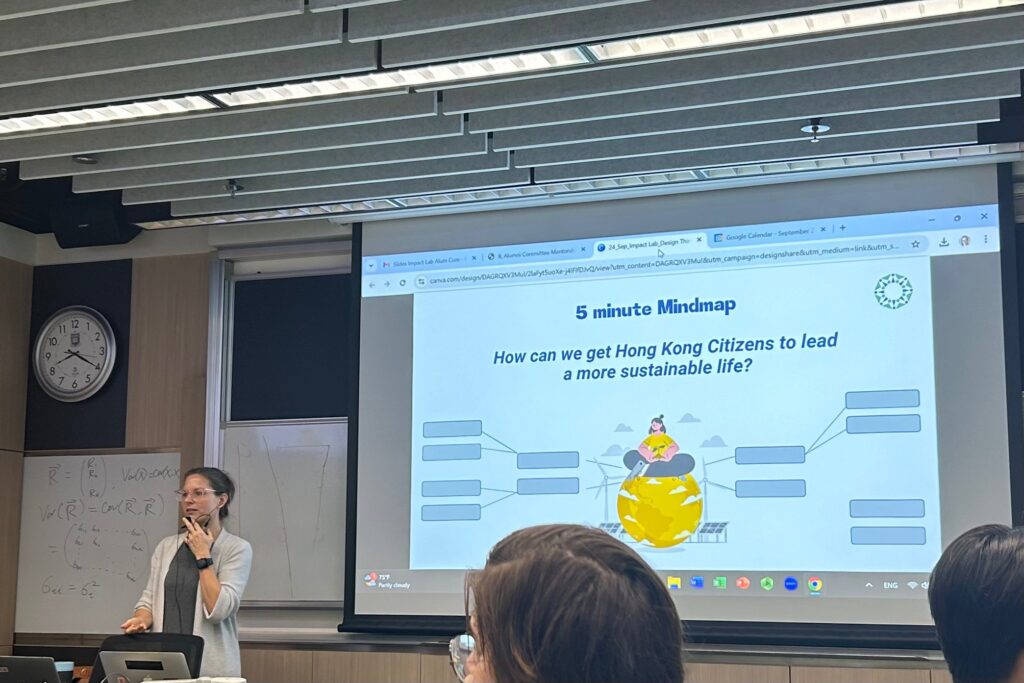
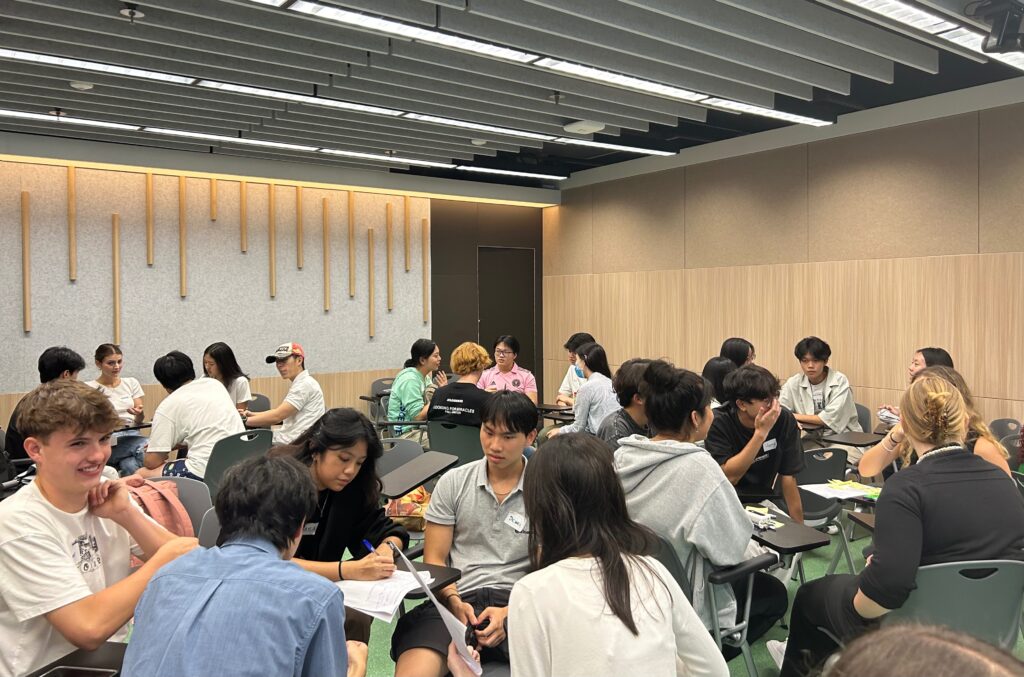
Discussion Session on Innovative Solutions for Sustainability Problems
The students got into groups to spend five minutes brainstorming ideas on the question, “How can we get Hong Kong citizens to lead a more sustainable life?” There were many interesting ideas, such as increasing funding for sustainability organizations, providing nutritious lunches in schools to reduce food packaging waste, and fostering a close-knit community that promotes mindfulness of each other’s health and safety.
The second exercise was to define a problem and build on the previous concepts to identify two or three optimal solutions. Here are some of the brilliant ideas that came up within 20 minutes:
- Install ESG-related art in public spaces to encourage expression and raise awareness;
- Implement 100% flexible working hours to reduce traffic in peak times and provide 24-hour MTR services;
- Encourage spending on activities rather than material goods by increasing community spaces like parks and cinemas and launching a student voucher scheme for shared entertainment;
- Regulate supermarkets to import sustainable quantities of fruits from nearby countries and impose a tax on transport mileage to reduce food waste and pollution;
- Leverage trends and work with influencers to drive change beyond just policies and mandates.
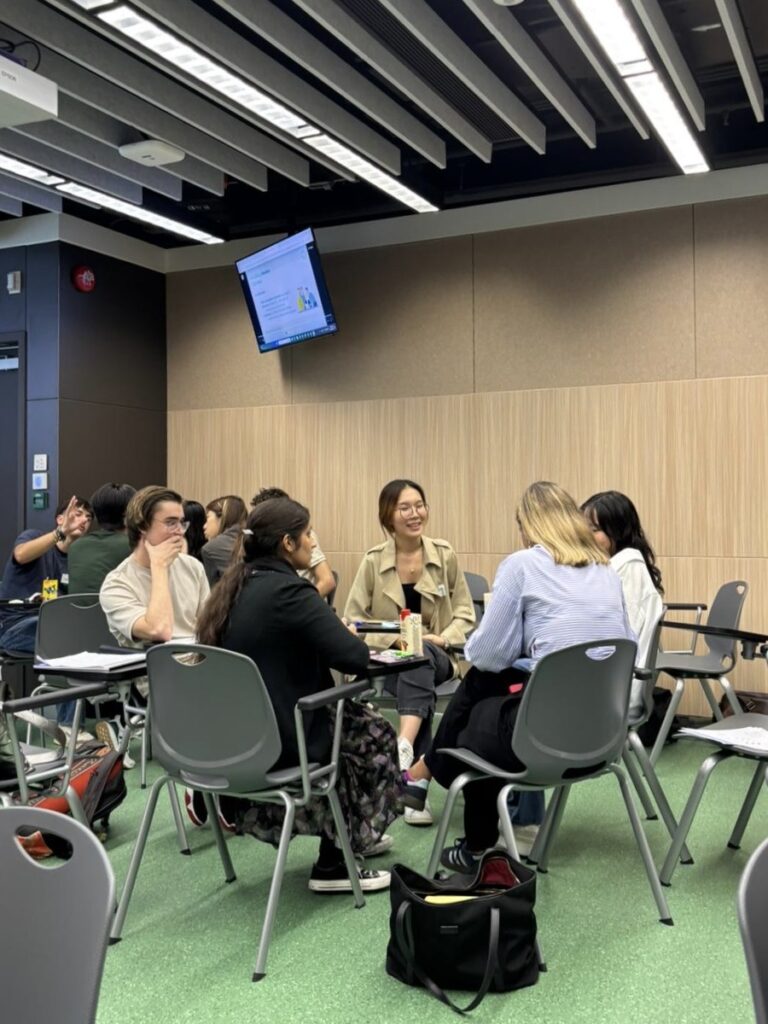
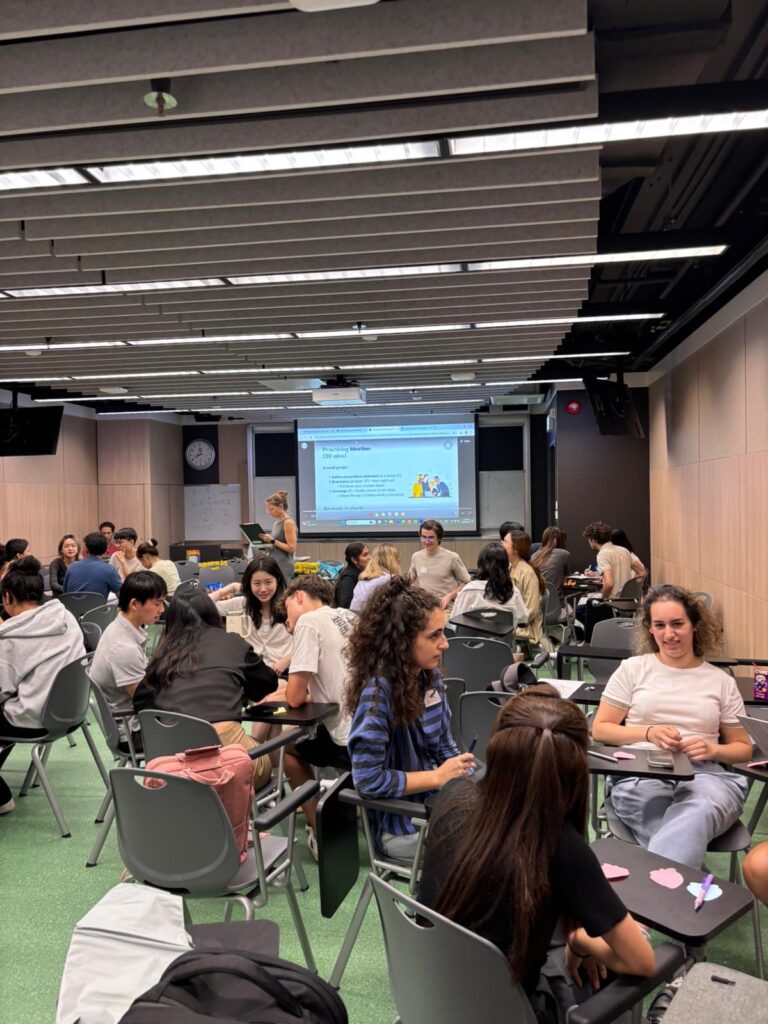
“It was actually really interesting just hearing loads of different viewpoints that I definitely wouldn’t have initially thought of,” said Matilda Judy Tabram, a third-year student working with Seekr Vidi Labs. “With a lot of ideas that came up, I think I was maybe a bit close-minded at the start, but the more we spoke about certain ideas the more I opened my mind to it.”
Another third-year student, Kim Aujin, who is working with Gowld Arts Centre, shared the sentiment: “I liked that we got to meet people from different companies and cultures…I think knowing people from different companies will be helpful to get other perspectives, not just within my own.”
The seminar gave the students a chance to foster connections and inspired innovative thinking around social impact. In upcoming meetings, the Impact Lab students will continue to explore different solutions and ideas to make a difference in their community.
Stay tuned to this space for details of the next Impact Lab Course seminar!
*This blog post was drafted by Hyewon Lee, Communications and Marketing intern at the Foundation for Shared Impact (FSI) during the Fall 2024 semester of the Impact Lab Course.



